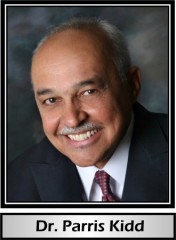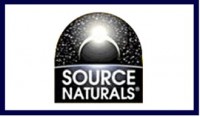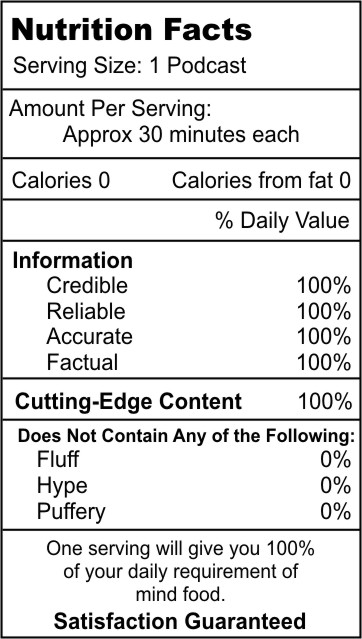Podcast: Play in new window | Download (Duration: 43:18 — 79.6MB)
GPC boosts mental performance in all ages.

In this interview with Dr. Parris Kidd you will learn about the benefits of GlyceroPhosphoCholine (GPC) and other brain support nutrients. We now know that the brain is more fluid and malleable than previously thought. Brain structure and function can change and improve. Dr. Kidd describes the benefits of GPC for brain energy. This has important implications for people of all ages. It can be especially meaningful for people recovering from strokes and for older people experiencing memory loss and the dementia of aging. He suggests there may be some benefit for autistic children.
The specific nutrients recommended by Dr. Kidd are GPC, Phosphotydlserine (PS), Acetyl L Carnitine, Omega-3 and B Vitamins. It is critical to recognize that nutrients do not treat or cure disease. When you think of nutrients as drugs to fix your problems then you are missing the real power of nutrition. The simple, but profound, truth is that nutrients are the key molecules that your body can use to manage all functions of life. When given the right nutrients your body can do profound and amazing things. Drugs are not nutrients and nutrients are not drugs. Do not confuse the two. Dr. Kidd mentions how multiple nutrients can provide multiple benefits. One nutrient has one benefit while other nutrients provide other benefits. Together the effects of nutrition and lifestyle can be life changing.
The following article excerpt was written by Dr. Kidd and is found in the learning library of Source Naturals Learning Website. CLICK HERE to learn more. Source Naturals was the first company to introduce Dr. Kidd and GPC to me back in 2004. I have been a fan ever since.
Article Excerpt
“GPC or GlyceroPhosphoCholine (pronounced gli-sero-fos-fo-ko-lean) is a nutrient with many different roles in human health. It reaches extremely high concentrations within our cells, and its abundance in mother’s milk suggests it is crucial to life processes. Clinically, GPC has been most intensively researched for its brain benefits. Biologically, it has great importance for the skeletal “voluntary” muscles, the autonomic nervous system, kidneys, liver, and reproductive organs. GPC goes beyond being a brain nutrient; it is a nutrient for vitality and long life.
GPC is unmatched for its support of active living and healthy aging. In some 23 clinical trials GPC improved mental performance in all functional categories. GPC can revitalize the aging brain, facilitating growth hormone (GH) release and boosting nerve growth factor actions. GPC’s ample presence in human mother’s milk suggests it could be conditionally essential. By supporting mental integrity, mind-body integration, the autonomic system, and the body’s other organs, GPC enhances the active lifestyle. GPC is remarkable nutritional support for optimal health at any age.
Marked Benefits to the Brain
As a dietary supplement, GPC’s brain benefits are unique. It boosts mental performance in healthy young people, as shown by three double-blind trials. In trials on middle aged subjects, GPC improved mental performance: reaction time, visual evoked potential, and EEG delta slow waves. In the elderly, GPC improves mental performance and provides noticeable revitalisation. In 11 human trials with 1,799 patients, memory, attention, and other cognitive measures improved. So did mood (including irritability and emotional stability), and patients often developed renewed interest in relatives and friends. GPC was well tolerated, and generated no bad drug interactions. A large trial on elderly subjects with memory challenges published in 2003 concluded GPC had significant benefits for these individuals.
GPC Supports Normal Brain Function
Circulatory deprivation or surgery can challenge healthy brain function. GPC can speed recovery and support improved quality of life. In four trials with GPC on 2,804 subjects who experienced difficulties under these circumstances, up to 95% showed good or excellent improvement. GPC consistently improved space-time orientation, degree of consciousness, language, motor capacity, and overall quality of life. The investigators concluded GPC offered marked benefits, with an excellent benefit-to-risk profile. Up to half of patients who survive bypass surgery experience problems with memory and other mental performance. A double-blind trial conducted with bypass survivors for six months determined that the GPC group had no remaining memory deterioration, while the placebo group failed to improve.
GPC Works Through Multiple Mechanisms
 It helps keep choline and acetylcholine available to the tissues. Choline is an essential nutrient and GPC appears to be the body’s main choline reservoir. GPC in mother’s milk represents the baby’s main source of dietary choline. ACh is a major brain transmitter; the motor nerves use ACh to drive the skeletal (“voluntary”) muscles; the autonomic nervous system uses it to pace all the organs. ACh is also central to mental and physical endurance, and mind-body coordination.
It helps keep choline and acetylcholine available to the tissues. Choline is an essential nutrient and GPC appears to be the body’s main choline reservoir. GPC in mother’s milk represents the baby’s main source of dietary choline. ACh is a major brain transmitter; the motor nerves use ACh to drive the skeletal (“voluntary”) muscles; the autonomic nervous system uses it to pace all the organs. ACh is also central to mental and physical endurance, and mind-body coordination.- GPC is a major cell-level protectant, not as another antioxidant but in pivotal roles of osmotic pressure regulator and metabolic antitoxin. GPC very high concentrations in the kidney, bladder, liver, brain, and other organs. As metabolic protectant, GPC shields proteins against urea buildup.
- GPC is a major reservoir for cell membrane omega-3 phospholipids. These substances are the major building blocks for cell membranes. Enzymes couple GPC with the omega-3 fatty acid DHA, to make the phospholipid PC-DHA. This makes membranes especially fluid, enabling membrane proteins to perform with better efficiency. GPC produces PC-DHA in the skeletal muscles, wherein fluidity is essential for contraction. Muscles that function abnormally can show GPC deficiency.
- GPC contributes to both male and female in reproduction. As spermatozoa mature, GPC is used to make PC-DHA that makes their membranes fluid to enable motility. With men, the lower their semen GPC the greater the likelihood of poor sperm motility and with it, infertility. Once semen is inserted into the female, an enzyme in uterine secretions breaks down the semen’s GPC into substances that energize the sperm to achieve fertilization.
Dosing, Safety, Tolerability, Compatibility
Oral intake of GPC in the clinical trials was usually 1,200 milligrams (mg) per day, taken early in the day on an empty stomach. A reasonable dietary supplementation regimen is 1200 mg/day, taken in divided doses (AM and PM) between meals for 15-30 days, and thereafter 600 mg/day for maintenance. Symptomatic subjects can take 1200 mg/day until adequate improvement is achieved. Young, healthy subjects may experience benefit from daily intakes as low as 300 milligrams.
GPC is very safe, being compatible with vitamins and nutrients and with pharmaceuticals. In clinical trial comparisons, GPC’s benefits surpassed the other forms of choline: acetylcarnitine and CDP-choline.” END excerpt.
About Dr. Parris Kidd
Dr. Kidd is the smartest person I know. Dr. Kidd hails from Jamaica, where he earned a B.Sc. Special Honors degree in zoology-marine biology magna cum laude at the University of the West Indies. From the University of California at Berkeley he earned a PhD in cell and developmental biology. He then became a faculty research investigator at the University of California’s San Francisco Medical Center (UCSF), and a lecturer at Berkeley and the University of the Pacific. In 1983 Dr. Kidd decided to enter nutritional biomedicine. His first project in this new field was the book Antioxidant Adaptation—Its Role in Free Radical Pathology. This 500-page text established Dr. Kidd as a leading scientist in the field of alternative medicine.
In 1994 Dr. Kidd refocused his career on brain nutrition. In 1994 he helped introduce the brain nutrient PhosphatidylSerine (PS) to North America, then in 1997 another foremost brain nutrient, GlyceroPhosphoCholine (GPC). In 2003 he helped introduce Krill Omega-3 Phospholipids. He is authoritative on the entire range of brain nutrients. Dr. Kidd is internationally recognized as a biomedical educator, researcher, and product developer. Click on the tag link below to find all interviews with Dr. Parris Kidd.













{ 2 comments… read them below or add one }
Where can I purchase the Best GPC.
Look for Doctor’s Best Natural Brain Enhancers at independent health food stores or online.